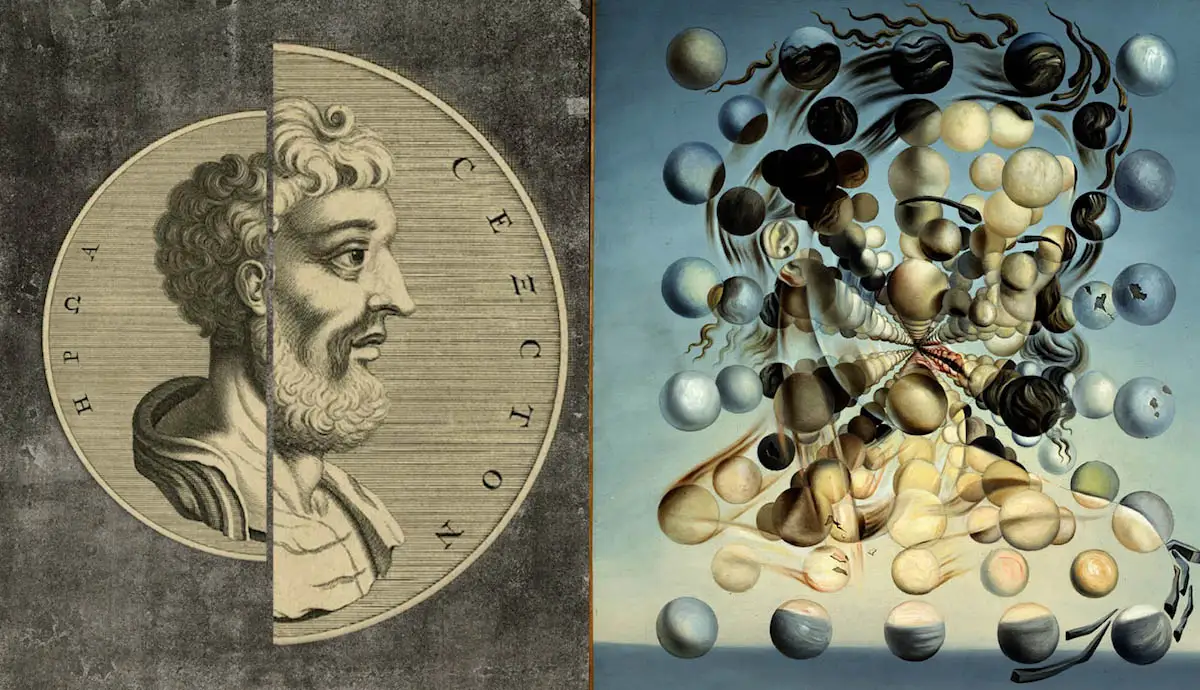The term ‘epistemic’ might sound like an esoteric word reserved for philosophers and scholars, but it’s relevant to everyone. Understanding it can influence how we think, make decisions, and view the world. So, let’s talk about this fascinating topic and uncover its richness and relevance to our lives.
The Basics You Need to Know About
Epistemology, from which the term “epistemic” is derived, is the branch of philosophy that deals with the nature, scope, and origins of knowledge. It answers questions like: What is knowledge? How do we come to know something? And how can we be sure of what we know?
Origins and Evolution
The word ‘epistemology’ comes from the Greek words ‘episteme’ (knowledge) and ‘logos’ (study). Ancient Greek philosophers like Plato and Aristotle were among the first to delve deep into the nature of knowledge.
Throughout history, epistemology has evolved, incorporating insights from various cultures and thinkers.
- Plato believed in the existence of eternal truths that could be grasped through reason.
- Aristotle, on the other hand, emphasized empirical observations as a foundation for knowledge.
- Over the centuries, diverse schools of thought emerged, from rationalism to empiricism to constructivism.
Central Questions
Epistemology seeks to answer profound questions about knowledge. Discussing these can provide us with a roadmap to navigate our beliefs and convictions.
- What is Knowledge? Is it just belief, or does it require evidence and justification?
- How do we acquire knowledge? Through senses, reason, or intuition?
- What are the limits of our knowledge? Are there things that are unknowable?
Epistemic Values and Virtues
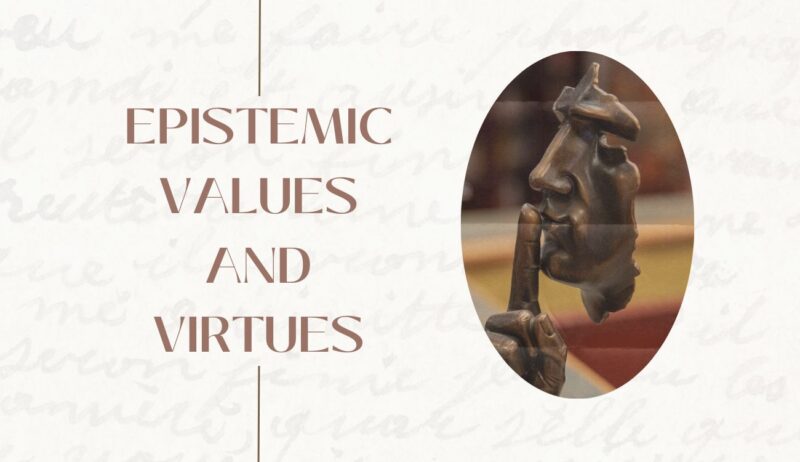
While epistemology often grapples with abstract concepts, it also has a practical side. This revolves around the ideals and virtues that can guide us in our quest for knowledge.
The Role of Curiosity
Curiosity, often considered the first step toward gaining knowledge, is a fundamental epistemic value. It pushes us to ask questions, seek answers, and explore the unknown.
- Curiosity drives scientific exploration. It’s the spark behind groundbreaking discoveries and inventions.
- Beyond science, curiosity fuels artistic creativity, leading to profound works of art, literature, and music.
- On a personal level, being curious can enhance our understanding of the world, helping us become lifelong learners.
Intellectual Honesty and Open-mindedness
Two critical virtues in the epistemic realm are intellectual honesty and open-mindedness.
- Intellectual Honesty implies recognizing and acknowledging the limitations of one’s knowledge. It’s about being transparent about sources, avoiding biases, and admitting when one is wrong.
- Open-mindedness requires us to be receptive to new ideas, even if they challenge our existing beliefs. It’s the antithesis of dogmatism and promotes growth and understanding.
Epistemic in Everyday Life
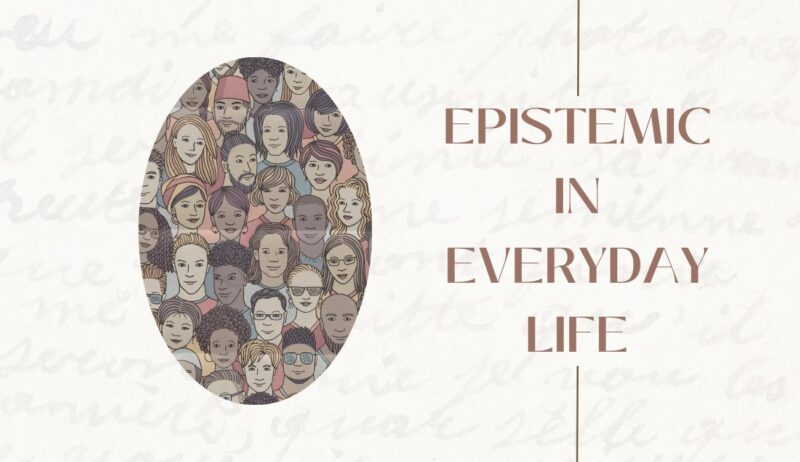
One might wonder: How does epistemic thinking influence our daily lives? The truth is, it’s everywhere. From the choices we make based on the information we receive to how we interpret the world around us, epistemic considerations play a pivotal role.
Decision Making
Our daily decisions, big or small, are often based on the knowledge we have. However, it’s essential to recognize the epistemic quality of this knowledge.
- Sources Matter: Whether it’s news, advice, or data, always consider the reliability of the source.
- Evidence-Based Decisions: Emphasizing evidence can lead to more informed choices, from medical treatments to financial investments.
Social Interactions and Communication
In the age of information, the way we communicate and interpret information has epistemic implications.
- Critical Thinking: When presented with a piece of information, especially in the age of misinformation, it’s vital to analyze its validity.
- Understanding Biases: Recognizing our own biases and those in the information we consume can lead to more nuanced and informed perspectives.
The Modern Challenges to Epistemic Thinking
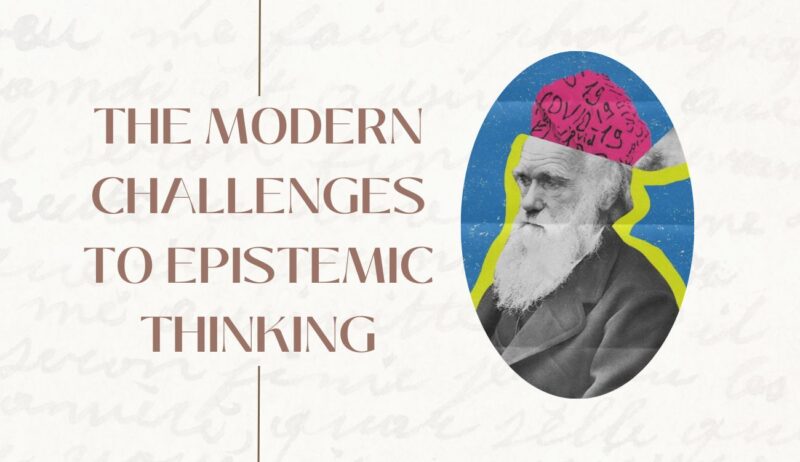
In our digital age, the landscape of knowledge has shifted dramatically. With the internet, we have access to vast amounts of information, but this also presents unique challenges to our epistemic foundations.
Information Overload and Misinformation
The sheer volume of information available at our fingertips is both a boon and a bane.
- Sifting through the Noise: With countless sources available, distinguishing between credible information and noise becomes crucial. This calls for sharpened epistemic skills to evaluate and verify content.
- Combating Misinformation: Fake news, hoaxes, and misinformation campaigns have become rampant. Epistemic vigilance is essential to discern fact from fiction.
The Echo Chamber Effect
Online platforms, with their personalized algorithms, often expose us to information that aligns with our pre-existing beliefs.
- Reinforcing Beliefs: These echo chambers can strengthen our convictions, but they can also limit our exposure to diverse perspectives.
- Breaking the Bubble: It’s an epistemic duty to seek varied sources and challenge our views regularly. This ensures that our knowledge is well-rounded and not just a reflection of our biases.
Epistemic Responsibilities in the 21st Century
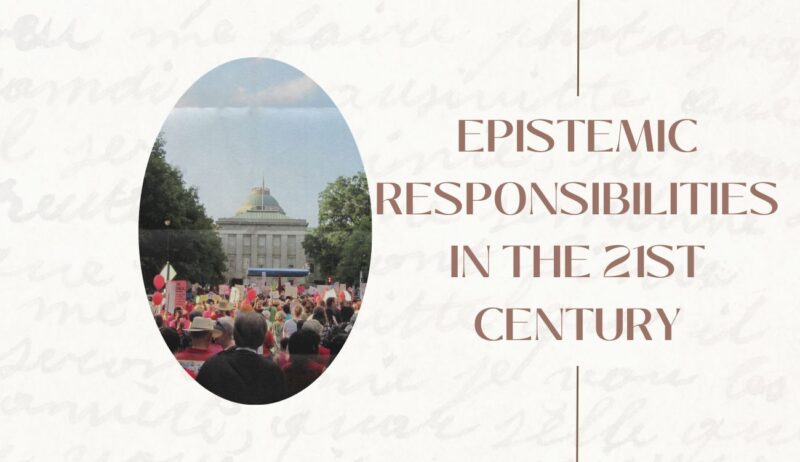
As global citizens, our epistemic practices have broader implications. We have responsibilities that go beyond personal knowledge acquisition.
Educating the Next Generation
The younger generation needs to be equipped with the right epistemic tools to navigate the modern world.
- Incorporating Critical Thinking: Schools and educational institutions must prioritize teaching critical thinking skills.
- Promoting Media Literacy: With media playing a significant role in information dissemination, understanding its nuances is crucial.
Fostering Collective Knowledge
In a world where collaboration is key, collective knowledge-building is of paramount importance.
- Open Dialogues: Encouraging conversations and discussions helps in refining ideas and perspectives.
- Valuing Expertise: While everyone has a right to an opinion, understanding and respecting expertise in various fields ensures that knowledge remains grounded in evidence and research.
The Interplay Between Epistemic and Ethics
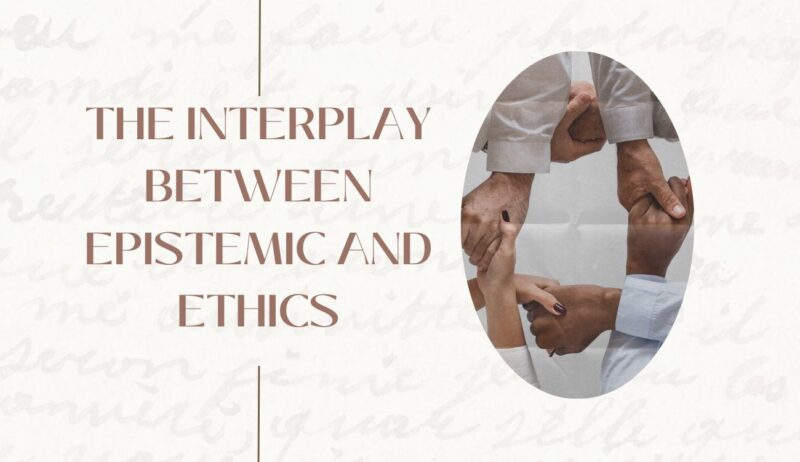
Epistemic considerations often intersect with ethical ones. How we come to know things and how we act based on that knowledge can have significant moral implications.
Ethical Considerations in Knowledge Acquisition
Acquiring knowledge isn’t always a straightforward process, and it often comes with ethical dilemmas.
- Research Ethics: Whether it’s clinical trials in medicine or social experiments in psychology, ensuring the well-being and consent of participants is paramount.
- Plagiarism and Originality: In academic and creative fields, the ethics of producing original content and crediting sources is a major epistemic concern.
Acting on Knowledge
Having knowledge carries the responsibility of using it ethically. The choices we make based on what we know can have widespread impacts.
- Whistleblowing: When individuals come across knowledge that reveals unethical practices, deciding whether to expose it can be a complex epistemic and ethical decision.
- Sharing and Withholding Information: In some cases, disseminating knowledge can be beneficial, while in others, it might be more ethical to withhold certain pieces of information for the greater good.
Frequently Asked Questions (FAQs)

Why is epistemic understanding especially important in today’s digital age?
In the digital age, we’re constantly bombarded with information from various sources. Epistemic understanding empowers individuals to critically assess the reliability, relevance, and validity of this information.
This helps in making informed decisions, avoiding misinformation, and fostering a well-rounded worldview.
Can one’s epistemic beliefs change over time?
Absolutely. Just as our knowledge and understanding of the world evolve, so can our epistemic beliefs. Life experiences, exposure to new information, debates, and even introspection can all influence and reshape our beliefs about knowledge.
Are there cultures or philosophies that approach epistemology differently?
Yes, epistemology isn’t monolithic. Different cultures, religions, and philosophical traditions have their own unique approaches to understanding knowledge.
For instance, Eastern philosophies might emphasize experiential or introspective knowledge, while Western traditions often prioritize empirical evidence and logical reasoning.
How can I develop better epistemic habits?
Developing better epistemic habits involves a mix of self-awareness, education, and practice. Regularly questioning the sources of your information, seeking diverse perspectives, engaging in open dialogues, and even formal education in critical thinking or philosophy can help refine and improve your epistemic habits.
How does epistemology relate to other branches of philosophy, like metaphysics or ethics?
Epistemology is deeply interconnected with other philosophical domains. While epistemology deals with the nature of knowledge, metaphysics is concerned with the nature of reality itself.
One’s beliefs about reality (metaphysics) can influence their beliefs about knowledge (epistemology). Similarly, ethics, which deals with questions of morality and right action, often intersects with epistemic considerations, especially when acting upon certain knowledge has moral implications.
Are there experts or thinkers you’d recommend for deepening my understanding of epistemic philosophy?
Certainly! Historically, thinkers like Plato, Aristotle, Immanuel Kant, and John Locke have made significant contributions to epistemology. For contemporary insights, one might explore the works of Willard Van Orman Quine, Edmund Gettier, or Hilary Putnam. However, the field is vast, and many philosophers have offered valuable perspectives, so it’s worth exploring a range of voices.
Final Words
‘Epistemic’ is more than just a philosophical concept. It’s a guide to navigating the intricate web of information and knowledge in our modern world. By understanding its nuances, values, and challenges, we not only become more informed individuals but also responsible members of a global community.
The journey of epistemic understanding is ongoing, but it’s one that promises richer perspectives and a deeper connection with the world around us. We’ve also recently written about optimistic nihilism, so make sure to check out this article and find out about this seemingly contradictory phenomenon.
